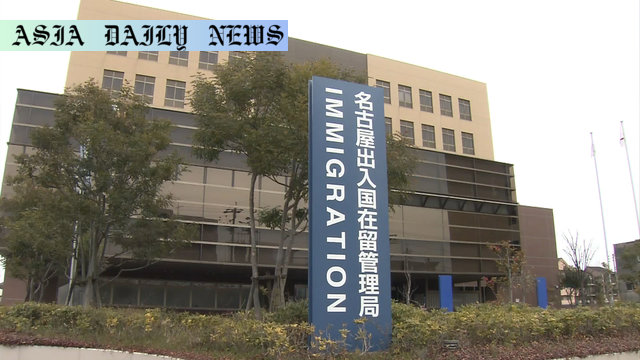Detention Footage: Family pushes for full disclosure of 295-hour security video of Sri Lankan woman at Japanese immigration center.
Sri Lankan woman died in Japanese detention center in 2021.
Family demands release of 295 hours of security footage.
The government resists, citing security concerns.
Family plans legal action for full disclosure.

Background of the Tragedy
In a tragic incident that continues to draw attention, Sri Lankan national Wishma Sandamali passed away at a Japanese immigration detention facility on March 6, 2021. Wishma, only 33 years old, had been detained in Nagoya for overstaying her visa. Following her complaints of deteriorating health, her condition worsened until she succumbed despite being under the custody of immigration authorities. Her family and international organizations have since demanded transparency and accountability surrounding the circumstances of her untimely death.
The Fight for Disclosure
The heart of the family’s demand centers around the 295 hours of security camera footage recorded while Wishma was detained. The released footage, a mere five hours of selective clips, has left her relatives questioning the adequacy of care provided to her. They argue that complete disclosure could illuminate any oversight or negligence by the authorities and offer clarity on what truly happened during her detention. However, officials have refused the demand for full disclosure, citing concerns over security protocols and the maintenance of order within detention systems.
The Legal and Ethical Debate
The Japanese government and immigration officials argue that medical examinations of Wishma detected no physical causes for her deteriorating condition. However, this stance is heavily contested by her grieving family. They claim that institutional neglect and inadequate healthcare contributed directly to her death. The lawsuit filed by the family seeks not only state redress but also justice for Wishma and structural reforms to ensure similar tragedies do not occur in the future.
Implications of Releasing the Footage
Beyond providing answers to the family, releasing the full footage could underscore systemic flaws in the treatment of detainees within Japan’s immigration system. Numerous human rights advocacy organizations consistently highlight issues surrounding immigration detention facilities, including complaints of inadequate medical services. Wishma’s case brings these issues under a glaring spotlight, raising fundamental questions about governmental transparency, detainee rights, and the balance between security and accountability.
The Way Forward
The case underscores the pressing need for reforms in immigration detention protocols. Transparency, oversight, and accountability must be prioritized to ensure detainee rights are upheld in accordance with international human rights standards. Wishma’s family’s demand is not just a fight for personal closure but a broader call for justice, change, and respect for human dignity.
Commentary
The Broader Implications of Wishma’s Case
The tragic death of Wishma Sandamali in a Japanese immigration detention facility raises profound questions about the treatment of detainees and the responsibilities of governments. Her family’s ongoing fight for the release of security footage is not merely a demand for transparency; it symbolizes a critical moment for Japan to reevaluate its immigration policies and detention practices. While her circumstances are tragic, they bring an opportunity to address systemic flaws and ensure no detainee’s plight goes unnoticed again.
Transparency as a Cornerstone of Justice
The refusal to disclose the complete 295 hours of security footage demonstrates the delicate balance between national security considerations and accountability. While concerns about revealing security protocols may be valid, they should not override the fundamental right of justice and clarity for those impacted by institutional failings. Transparency fosters trust, not just with the family seeking answers but also among the broader population and international observers questioning Japan’s human rights record.
A Call for Systemic Reforms
Wishma’s case sheds light on the limited medical care and support provided to those held in detention facilities. This issue is not unique to Japan, as many nations face similar criticisms regarding punitive approaches in immigration management. However, this incident signals the pressing need for Japan to introduce structural changes to improve healthcare, oversight, and humane treatment in their facilities. Such changes, if implemented effectively, could set a precedent for other nations grappling with similar issues.
Empathy and Accountability
Ultimately, Wishma’s case is a stark reminder of the human aspect often lost in immigration policies. Behind every policy decision lie individuals and families whose lives are directly impacted. It is incumbent on governments, institutions, and societies to ensure that immigration enforcement measures are balanced with compassion, human dignity, and accountability. Her family’s fight for justice transcends a single case—it is a call to ensure no one suffers the same fate within opaque systems that should serve, not harm.


